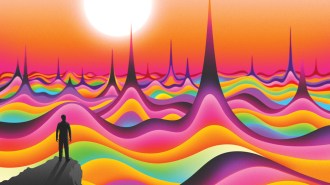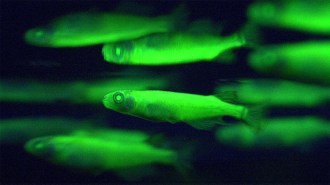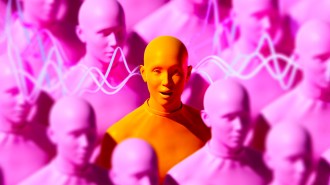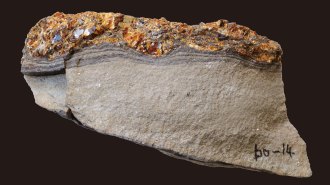Uncategorized
-
 Health & Medicine
Health & MedicineBiden’s prostate cancer is incurable, but it is treatable
Experts explain the science behind Biden's advanced prostate cancer diagnosis, including how common it is and what treatments are available.
By Meghan Rosen -
 Quantum Physics
Quantum PhysicsThe unsung women of quantum physics get their due
The new book, Women in the History of Quantum Physics, spotlights the oft-forgotten contributions of women scientists in the field.
-
 Quantum Physics
Quantum PhysicsAs quantum mechanics turns 100, a new revolution is under way
With greater control over the quantum realm, physicists are poised to make major leaps in quantum computing, quantum gravity and more.
-
 Animals
AnimalsJuvenile capuchins are kidnapping infants of another monkey species
Over 15 months on Jicarón Island, researchers saw five capuchin juveniles abduct 11 endangered howler monkey infants — all for no clear purpose.
By Freda Kreier -
 Animals
AnimalsA ‘talking’ ape’s death signals the end of an era
Kanzi showed apes have the capacity for language, but in recent years scientists have questioned the ethics of ape experiments.
By Erin Wayman -
 Science & Society
Science & SocietySome science seems silly, but it’s still worthwhile
The Salmon Cannon and the Levitating Frog contends that curiosity-driven research helps us understand the world and could lead to unexpected benefits.
By Karen Kwon -
 Health & Medicine
Health & MedicineRSV wasn’t as hard on U.S. babies last winter. This may be why
Two preventive tools — a maternal vaccine and a monoclonal antibody — were tied to a recent drop in RSV hospitalization rates for U.S. babies.
-
 Tech
TechNew audio tech could let you listen privately without headphones
Private listening out in the open is possible thanks to acoustic metasurfaces that precisely bend and direct sound waves.
-
 Health & Medicine
Health & MedicineFDA plan to ban fluoride supplements baffles and alarms dental experts
Fluoride supplements have been used in the United States for decades and have proven to be safe and effective for decreasing cavities.
-
 Health & Medicine
Health & MedicineAn at-home cervical cancer screening device was OK‘d by the FDA
The Teal Wand, an at-home HPV testing device that could replace a Pap smear, could broaden access to cervical cancer screening.
By Meghan Rosen -
 Genetics
GeneticsWhat gene makes orange cats orange? Scientists figured it out
Researchers found the gene and genetic variation behind orange fur in most domestic cats, solving a decades-long mystery.
-
 Oceans
OceansSeafloor amber may hold hints of a tsunami 115 million years ago
Oddly shaped deposits of tree resin point to massive waves that struck northern Japan roughly 115 million years ago and swept a forest into the sea.